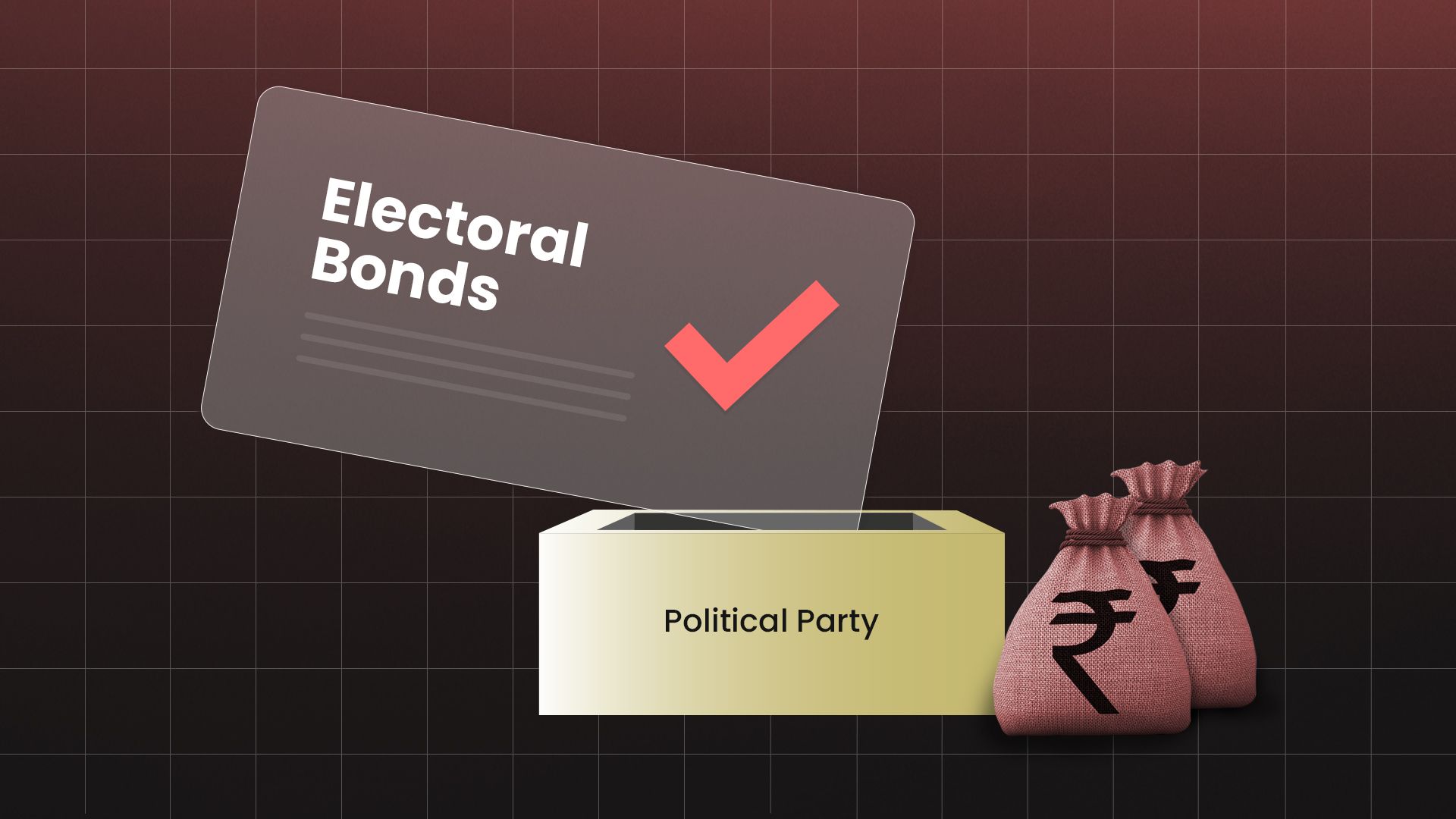Electoral Bonds Scheme
Why in News
A Constitution Bench consisting of five judges, with Chief Justice of India D Y Chandrachud at the helm, is scheduled to commence hearings on a series of petitions challenging the 2018 Electoral Bonds Scheme proposed by the Finance Ministry.
Important Points
- The petitioners assert that the principle of anonymity within the electoral bonds scheme contradicts the fundamental 'right to know,' a key component of the 'right to information' (Article 19).
- In response, Attorney General R Venkataramani, through written submissions, argued that citizens' right to information is subject to reasonable limitations.
What Are Electoral Bonds?
- Electoral bonds are interest-free "bearer instruments" introduced by the Indian government in 2017. These bonds function as promissory notes and can be redeemed by the bearer on demand. They enable anonymous donations to political parties.
How Do They Work?
- Electoral bonds are available for purchase in denominations ranging from Rs1,000 to Rs1 crore from authorized State Bank of India (SBI) branches, subject to Know Your Customer (KYC) norms. Political parties can encash these bonds within 15 days of receipt and use the funds for electoral expenses.
Purchase Windows
- Electoral bonds can only be bought during 10-day windows in the months of January, April, July, and October. This limited availability aims to regulate the flow of funds to political parties.
Eligibility Criteria
- Electoral bonds can only be used to donate to political parties registered under Section 29A of the Representation of the Peoples Act, 1951. These parties must have secured at least 1% of the votes in the last election to the House of the People or a Legislative Assembly.
Rationale Behind Electoral Bonds
- Previous Fundraising Method: Indian political parties have conventionally relied on financial contributions from both individual citizens and corporate entities.
- Under this traditional system, donors were permitted to contribute up to Rs 20,000 in cash to a political party without the obligation to disclose the source of these cash donations.
- For amounts exceeding this threshold, donations had to be made via checks or demand drafts, with the requirement for political parties to declare the sources of these contributions in reports submitted to the Election Commission of India (ECI).
- Issues of Cash Donations: One significant drawback of the traditional fundraising system was the prevalence of cash donations. To avoid the necessity of disclosing donors to the ECI, political parties sometimes accepted donations exceeding Rs 20,000 in cash by dividing them into smaller, multiple amounts.
- This practice of cash donations allowed donors to remain anonymous and facilitated the inflow of unaccounted funds into the political system.
- Efforts to Discourage Cash and Enhance Transparency: In response to the challenges posed by cash donations and the lack of transparency, the Indian government introduced the electoral bond mechanism.
- This move aimed to discourage the reliance on cash contributions and promote greater transparency in political fundraising.
- Significance of Anonymity of Donors: The preservation of donor anonymity through the electoral bond system is expected to decrease the influence of cash donations and enhance the traceability of election funding.
- Proponents of this bond mechanism argue that any move to require donor disclosure may result in the resurgence of the practice of financing political activities through cash contributions.
Criticisms of Electoral Bonds
- Transparency Setback: Critics argue that electoral bonds hinder transparency in political funding by allowing unlimited, anonymous donations from Indian and foreign companies, potentially fostering electoral corruption.
- Donor Anonymity Issues: The donor anonymity feature of the system goes against transparency and violates citizens 'right to know.' It lacks effective donor tracking.
- Money Bill Introduction: The introduction of electoral bonds as a 'money bill' bypasses Rajya Sabha scrutiny, raising concerns about the process's integrity.
- Election Commission Concerns: The Election Commission is concerned that electoral bonds may compromise transparency and invite foreign corporate influence. It warns of the possibility of shell companies established solely for political contributions, undermining reporting requirements.
- Reserve Bank of India's Warnings: The Reserve Bank of India (RBI) repeatedly cautioned about electoral bonds' potential to increase black money circulation, money laundering, cross-border counterfeiting, and forgery due to their opaque nature and transferability.




.jpg)


.jpg)
.jpg)





